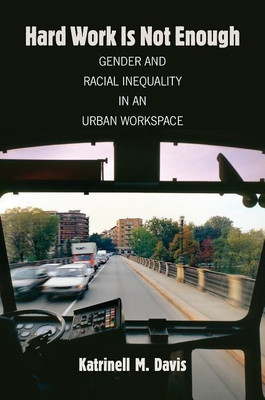Hard Work Is not Enough(English, Hardcover, Davis Katrinell M.)
Quick Overview
Product Price Comparison
The Great Recession punished American workers, leaving many underemployedor trapped in jobs that do not provide the income or opportunitythey need. Moreover, the gap between the wealthy and the poor has widenedin past decades as mobility remains stubbornly unchanged. Against thisdeepening economic divide, a dominant cultural narrative has taken root:immobility, especially for the working class, is driven by shifts in demand forlabor. In this context, and with right-to-work policies proliferating nationwide,workers are encouraged to avoid government dependency by armingthemselves with education and training. Drawing on archival material and interviews with African Americanwomen transit workers in the San Francisco Bay area, Katrinell Davis grappleswith our understanding of mobility as it intersects with race and genderin the postindustrial and post-civil rights United States. Consideringthe consequences of declining working conditions within the public transitworkplace of Alameda County, Davis illustrates how worker experience-onand off the job-has been undermined by workplace norms and administrativepractices designed to address flagging worker commitment and morale.Providing a comprehensive account of how political, social, and economicfactors work together to shape the culture of opportunity in a postindustrialworkplace, she shows how government manpower policies, administrativepolicies, and drastic shifts in unionisation have influenced the prospects oflow-skilled workers.


